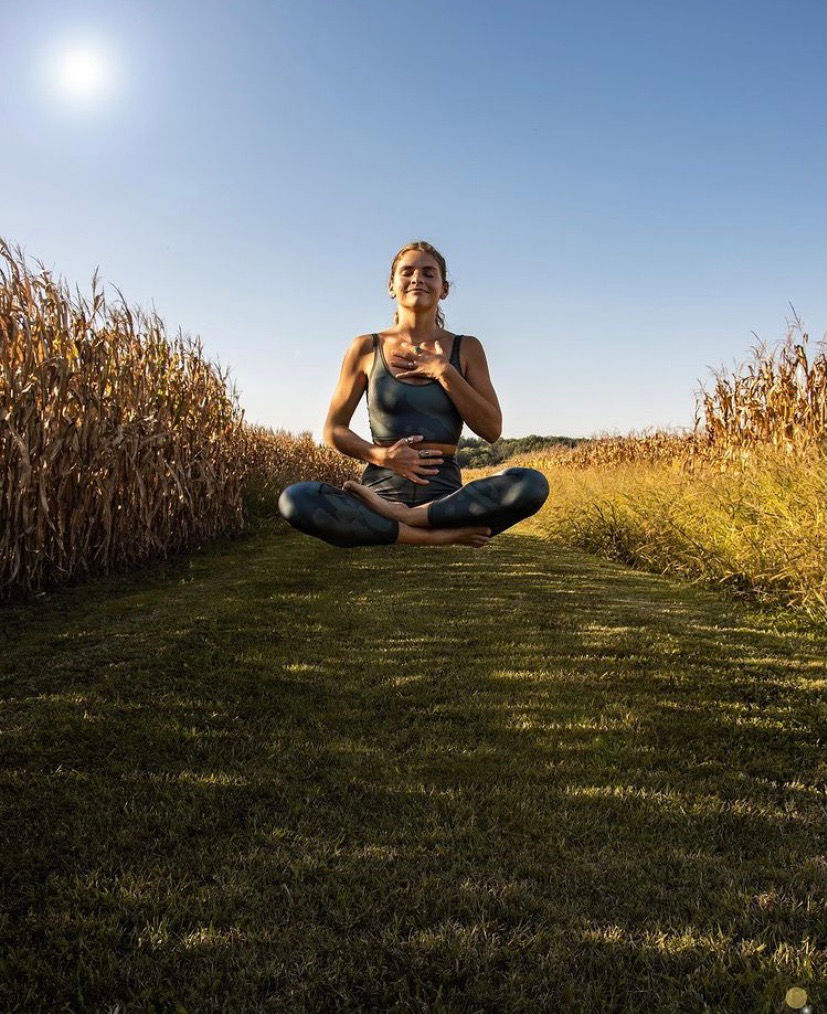#UNLITTER your Mind - The Effects of Yoga on Mental Health
- kikiloum
- Mar 3, 2021
- 4 min read
Written by Kiki Mueller - @UNLITTER team

Yoga instructor Bailey Wallick - Image from @baileyyyoga Instagram account. Photo taken by @bamsrewer
Stress Management:
Stress management focuses on easing the mental and emotional burdens of everyday events. The pandemic has caused great strain on many individuals, and mindfulness has become a necessity to remain at peace during uncertain times. Finding simple and healthy ways to relieve stress through activities, such as yoga, allows you to center yourself and improve your overall well-being.

Yoga instructor Bailey Wallick - Image from @baileyyyoga Instagram account.
“Yoga is an ancient system of breathing practices, physical exercises and postures, and meditation intended to integrate the practitioner's body, mind, and spirit” (Key, 1659).
Therefore, its purpose directly relates to the larger mindset of holistic medicine which serves as a premise for the intention of this exercise. Yoga has many benefits that attribute to an individual’s well-being. The following information regarding the benefits of yoga shows just how amazing this practice truly is!
Incorporating Meditation in Your Yoga Practice:
Meditation, which is an important part of yoga, determines the level of relaxation an individual can achieve when practicing yoga. Gentle yoga encompasses practicing poses in a more delicate fashion, focusing on the meditative and stress-relief nature through manageable poses. It is important to choose the type of yoga that suits your individual needs. Meditation provides space within your mind to look within. When you listen to their body, a calmness settles within your breath and the acknowledgment of the body’s abilities takes place.

#UNLITTER Captain Ali Rubin - Image from @unlittercalifornia Instagram account.
Let yoga help aid your wellness journey.
How Does Yoga Help With Mental Health:
Yoga has a calming effect due to the llink between GABA receptors (a brain chemical that regulates nerve activity) in the brain and yoga practice The results of recent data showed an altered state of brain chemistry; for example, a study from Boston University School of Medicine shows an increased levels of gamma-aminobutyric acid (GABA), which is low in people who suffer from mood and anxiety disorders (Shafer). Furthermore, the breathing techniques in yoga are essential when attempting to lessen stress because they help purify the body. (Beard)
Yoga can help with ADD / ADHD by calming the mind and increasing one’s focus. A study conducted in India in 2012 talks about Climb-Up which was a peer-mediated intervention program focusing on yoga, meditation, and play therapy. The outcome was significant as 91% of the students symptoms decreased within a year. By engaging in yoga practice, mental health and concentration can be positively impacted.
As mentioned, low GABA is typically connected with anxiety and depression. Psychologytoday discusses two studies. A Boston University study in 2010 compared walkers and yogis, finding that yogis had higher levels of GABA levels despite equal exertion. As a result, yoga can help with feelings of anxiety and depression. Another study found that adolescent musicians who participated in yoga had decreased anxiety in both group and solo performances.
Another study taken in 2016 conducted at the University of Pennsylvania. This study focused on individuals who had major depressive disorder (MDD) but did not respond to medication. They did, however, have decreased depression and anxiety after practicing Sudarshan Kriya yoga which focuses on cyclical controlled breathing. The individuals who took meds did not see any changes.
Yoga has been noted as an effective treatment for depression referencing a series of studies from the Netherlands. The first study found that depression, anxiety, stress, and rumination lessened amongst individuals who suffered from depression for an average of 11 years after engaging in 2.5-hour classes for nine weeks along with therapy and antidepressants. The second study found that practicing mindful yoga for 30 minutes with their instructor, continuing a practice at home for eight days with an instructional video had decreased symptoms up to two months after they completed the study.
As you connect with yourself through conscious movement, you are able to gain a sense of awareness and move in alignment with your "higher self". This connection to "self" paves the way to increased confidence.
The list of benefits that correlate with yoga goes beyond anxiety and depression, including, but not limited to:
Emotional Regulation: A study shows that adolescents were more easily able to control anger in comparison to those who were only involved in physical education.
Improving overall mood: Yoga can improve one’s mood by lessening depression and decreased perceived stress. A study mentioned in Psychologytoday found that a prison-based population (2013) found lessened reported psychological stress.
Eating disorders: Yoga can help with eating disorders by providing support. Focusing on the overall premise of holistic well-being, creates an empowerful environment that helps increase a sense of control and heighten a sense of appreciation for one’s body, cultivating an overarching premise for self-love.
Conclusion:
Yoga allows you to redirect your thoughts from things that are out of control to the present moment, to your breath. Yoga helps one develop self-trust. Ultimately, yoga has the power to contribute to one’s healing journey as it promotes self-awareness, self-care, emotional stability, and personal-development.
Sources:
Beard, Keith, et al. "Anxiety Reduction Techniques." The Gale Encyclopedia of Mental Health, edited by Kristin Key, 3rd ed., vol. 1, Gale, 2012, pp. 117-122.
Shafer, Leslie. "Yoga." Encyclopedia of Wellness: From Açaí Berry to Yo-Yo Dieting, edited by Sharon Zoumbaris, vol. 3, Greenwood, 2012, pp. [881]-885.

Opmerkingen